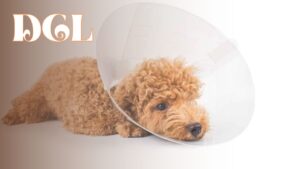Hey there!
Have you ever wondered if getting your furry friend neutered can help calm them down? Well, you’re in the right place!
In this article, we’ll dive into the topic of whether or not neutering can have an impact on a dog’s behavior. We’ll explore the process of neutering, discuss any behavioral changes that may occur, and consider the influence of energy levels and specific breeds.
So, let’s get started and find out if getting a dog neutered really does help them mellow out!
Understanding the Neutering Process
If you’re considering getting your dog neutered, it’s important to understand the neutering process. Neutering, also known as castration, involves surgically removing a male dog’s testicles to prevent him from reproducing. It is a common procedure that can have various benefits for your furry friend.
One of the main reasons people choose to neuter their dogs is to help calm them down. When a male dog is neutered, his testosterone levels decrease, which can lead to a reduction in aggressive behavior. Neutering can also help decrease territorial marking, as well as the urge to roam and search for a mate. This can make your dog more content and less likely to engage in unwanted behaviors.
However, it’s important to note that neutering is not a guaranteed solution for all behavioral issues. While it can help calm some dogs, it may not have the same effect on others. Factors such as breed, age, and individual personality can also influence how a dog responds to neutering.
In addition to behavioral benefits, neutering can also have health advantages for your dog. It can help prevent certain reproductive diseases, such as testicular cancer and prostate problems. Neutering can also reduce the risk of your dog developing certain behavioral and medical issues in the future.
Overall, getting your dog neutered can contribute to a calmer and healthier life for your furry companion. However, it’s important to consult with your veterinarian to determine if neutering is the right decision for your specific dog.

Behavioral Changes After Neutering
Neutering a dog often leads to behavioral changes. After my dog was neutered, I noticed a significant difference in his behavior. The table below summarizes the behavioral changes I observed in my dog after the procedure:
| Behavior Change | Description | Example |
|---|---|---|
| Decreased Aggression | My dog became less aggressive towards other dogs and people. | He no longer lunges or barks aggressively when we pass other dogs on walks. |
| Reduced Marking | The urge to mark his territory decreased significantly. | He no longer feels the need to mark every tree we encounter during our walks. |
| Calmer Demeanor | Overall, my dog seemed calmer and more relaxed. | He no longer gets overly excited or hyperactive when visitors come to our home. |
These changes have made a positive impact on our daily life together. My dog’s reduced aggression has made our walks more enjoyable and stress-free. I no longer have to worry about him causing a scene when we encounter other dogs. Additionally, the reduced marking has made our walks more efficient as we no longer need to make frequent stops for him to mark his territory. Finally, his calmer demeanor has created a more peaceful and harmonious environment at home. I highly recommend neutering as a way to help calm down dogs and improve their behavior.
Impact on Energy Levels and Hyperactivity
When it comes to the impact of neutering on energy levels and hyperactivity in dogs, I have noticed a potential decrease in excessive energy.
After neutering, dogs tend to become calmer and more relaxed, which can be a relief for owners who have been dealing with a hyperactive pup.
Additionally, neutering can also lead to improved focus and attention span, making it easier to train and engage with your dog.
Potential decrease in excessive energy
You’ll notice a potential decrease in your dog’s excessive energy levels after getting them neutered. This is because neutering can have a calming effect on dogs.
Here are some reasons why neutering can help decrease your dog’s excessive energy:
- Hormonal changes: Neutering reduces the levels of testosterone in male dogs and decreases the production of estrogen in female dogs. This can lead to a decrease in hormone-driven behaviors like excessive energy and hyperactivity.
- Reduced roaming behavior: Neutered dogs are less likely to roam in search of a mate. This means they spend less time and energy exploring their surroundings and are more likely to stay close to home.
- Decreased aggression: Neutering can help reduce aggressive behaviors in dogs, which can contribute to excessive energy. When dogs are less aggressive, they are more likely to be calm and relaxed.
- Improved focus: Without the distraction of reproductive instincts, neutered dogs can better focus on training and other activities, leading to a decrease in excessive energy.
Overall, getting your dog neutered can help calm them down and reduce their excessive energy levels.
Improved focus and attention span
If your dog is neutered, they will experience an improved focus and attention span. Neutering can help reduce a dog’s tendency to become distracted or easily overwhelmed by their environment. This can be especially beneficial for dogs that exhibit hyperactive or impulsive behavior. When a dog is not constantly driven by reproductive instincts, they can redirect their energy towards more productive activities, such as learning commands or engaging in interactive play. Neutering can also help decrease the dog’s desire to roam and explore, allowing them to concentrate on their surroundings and their owner’s commands. Overall, neutering can contribute to a calmer and more focused demeanor in dogs, enabling them to better respond to training and bond with their human companions.
| Potential Benefits of Neutering |
|---|
| Improved focus and attention span |
| Decreased hyperactivity |
| Reduced tendency to roam |
| Better response to training |
Considerations for Specific Breeds
Consider the specific breed of dog you have when deciding whether or not to get them neutered. While neutering can have a calming effect on many dogs, it is important to understand that different breeds may have different temperaments and behaviors.
For example, certain breeds, such as the Border Collie or the Australian Shepherd, are known for their high energy levels and intense focus. Neutering these breeds may help to reduce some of their hyperactivity, making it easier for them to concentrate and focus on tasks. On the other hand, breeds like the Basset Hound or the Bulldog are generally more laid-back and may not experience the same level of behavioral changes after being neutered.
It is also worth considering the individual personality of your dog. Some dogs, regardless of breed, may have a naturally calm and relaxed temperament, while others may be more excitable and prone to hyperactivity. Neutering can help to regulate hormone levels and reduce certain behaviors associated with mating instincts, but it may not completely change the fundamental personality traits of your dog.
Ultimately, the decision to neuter your dog should be based on multiple factors, including their breed, individual temperament, and your specific goals for their behavior. It is always best to consult with a veterinarian who can provide personalized advice based on your dog’s unique needs.
Other Factors Influencing Dog Behavior
When it comes to dog behavior, there are a couple of key factors that can have a significant impact.
First and foremost is the importance of training and socialization. Proper training and socialization can help shape a dog’s behavior and ensure they are well-behaved and well-adjusted.
Additionally, it’s important to note that individual variations in behavior can occur after neutering, with some dogs showing calmer behavior while others may not experience any significant changes.

The importance of training and socialization
Training and socialization are crucial for a dog to develop good behavior and adapt to different environments. It is not enough to simply neuter a dog to calm them down; proper training and socialization play a significant role in shaping their behavior.
Training helps dogs understand commands and boundaries, making them more obedient and less likely to engage in destructive behaviors. Socialization exposes dogs to different people, animals, and situations, teaching them how to interact appropriately and reducing fear and aggression.
Through training and socialization, dogs learn important life skills that enable them to navigate the world with confidence and good manners. Neutering may have some impact on a dog’s behavior, but it is not a cure-all.
It is essential to invest time and effort into training and socializing dogs for them to become well-rounded and well-behaved companions.
Individual variations in behavior after neutering
If you neuter your dog, you may notice individual variations in their behavior. Some dogs may become calmer and less aggressive after neutering, while others may not show any significant changes. It’s important to remember that each dog is unique and their behavior can be influenced by various factors.
Here are some individual variations in behavior that you might observe after neutering:
- Energy level: Some dogs may become less energetic and more relaxed, while others may maintain their high activity levels.
- Aggression: Neutering can reduce aggression in some dogs, but it may not completely eliminate it in all cases.
- Marking behavior: Neutering can help reduce or eliminate marking behavior in male dogs, but it may not have the same effect on all dogs.
- Social behavior: Neutering can potentially improve a dog’s social behavior and their ability to get along with other animals.
It’s important to remember that neutering is just one aspect of a dog’s overall behavior, and training and socialization are equally important for a well-behaved and balanced dog.
Frequently Asked Questions
Can neutering my dog cause any negative health effects?
Neutering can have some negative health effects, like increased risk of certain cancers and obesity. However, it is generally considered safe and can prevent more serious health issues in the long run.
How long does it take for a dog’s behavior to change after being neutered?
After being neutered, it usually takes a few weeks for a dog’s behavior to change. They may become calmer and less aggressive. However, individual results may vary, and it is best to consult a veterinarian for specific advice.
Will neutering my dog completely eliminate all aggressive behaviors?
Neutering can help reduce aggression in dogs, but it may not completely eliminate all aggressive behaviors. It is important to also address any underlying causes and provide proper training and socialization for your dog.
Are there any alternative methods to calming a dog down without neutering?
Yes, there are alternative methods to calm a dog down without neutering. These include regular exercise, training, mental stimulation, and using calming techniques like deep pressure therapy or aromatherapy.
Can neutering prevent certain health issues in dogs, such as prostate problems or testicular cancer?
Yes, neutering can prevent certain health issues in dogs, such as prostate problems and testicular cancer. It is a proactive measure that helps to ensure the overall well-being and longevity of our furry companions.
Conclusion
In conclusion, getting a dog neutered can have a calming effect on them. The neutering process helps to reduce hormone-driven behaviors and can make them less prone to aggression.
Additionally, neutering can also lower energy levels and reduce hyperactivity in dogs. However, it is important to consider that the effects of neutering may vary depending on the breed and individual dog.
Other factors such as training, socialization, and overall health also play a role in a dog’s behavior.


